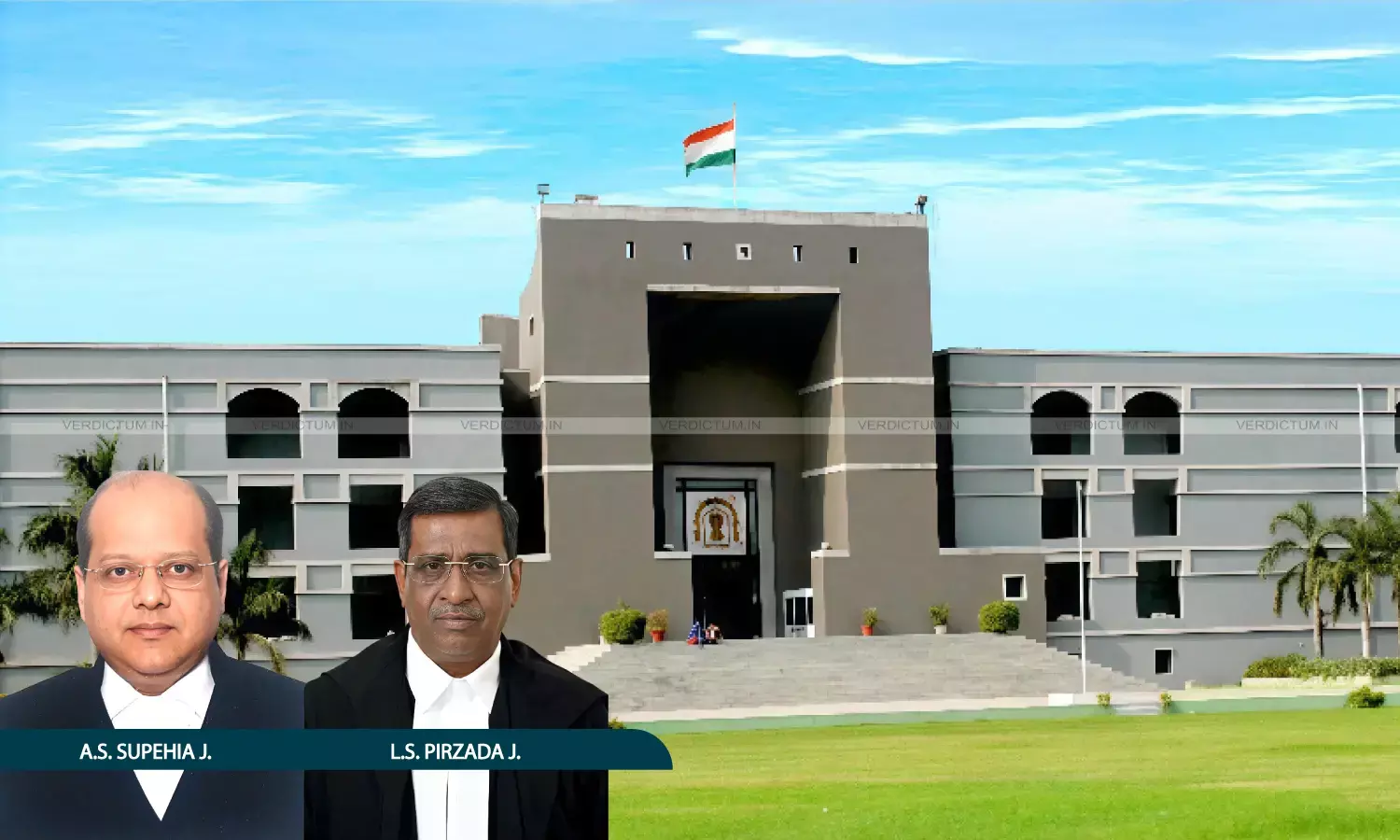Single Uncommunicated Adverse Remark Or Doubtful Integrity Enough To Compulsorily Retire A Judicial Officer: Gujarat High Court
The High Court upheld the compulsory retirement of an Additional District Judge, observing that even a single uncommunicated adverse remark or a finding of doubtful integrity in the service record is sufficient to order such retirement in the public interest.

The Gujarat High Court has held that the a single uncommunicated adverse remark is sufficient to compulsorily retire a judicial officer and that once the High Court, on the administrative side, forms a bona fide opinion regarding a judicial officer’s doubtful integrity or unsatisfactory service record, such an opinion cannot be interfered with unless it is shown to be mala fide or based on no evidence.
The Court was hearing a petition filed by an Additional District Judge challenging the notification issued by the State Government, which directed his compulsory retirement under Rule 21 of the Gujarat State Judicial Service Rules, 2005.
A Bench comprising Justice A.S. Supehia and Justice L.S. Pirzada, while dismissing the petition, observed that’ “…a single uncommunicated adverse remark in the entire service record, or a doubtful integrity is enough to retire a Judicial Officer compulsorily in the public interest. Any promotion or grant of a higher pay-scale / selection grade cannot have any impact on the order of compulsory retirement.”
Senior Advocate Asim Pandya appeared on behalf of the petitioner, while Senior Advocate Shalin Mehta represented the respondents.
Background
The petitioner, an Additional District Judge, was prematurely retired from service at the age of 53 pursuant to a notification issued by the Government of Gujarat. The notification followed the recommendation of a committee of three Judges of the High Court, which scrutinised the petitioner’s Annual Confidential Reports, disposal rates, vigilance records, and overall service profile in terms of Rule 21 of the Gujarat State Judicial Service Rules, 2005.
The Committee, after evaluation, found the officer unfit to continue in judicial service. Acting on this recommendation, the State Government issued the order of compulsory retirement in the name of the Governor. The petitioner challenged the order before the High Court, contending that his record was not poor enough to justify compulsory retirement and that the Governor had no occasion to examine the recommendation sent by the High Court, in the absence of which the Governor could not have retired him prematurely in his personal capacity.
Court’s Observations
The Gujarat High Court, while deciding the matter, undertook a detailed examination of the law governing the compulsory retirement of judicial officers. The Court, while emphasising that judicial officers must possess impeccable integrity, character, and reputation, remarked: “Any breach of the pristine standards/values as enumerated above will invite scrutiny by the High Court, and any Judicial Officer, whose conduct / reputation / behavior is found impinging the same can either attract disciplinary proceedings or compulsory retirement in the public interest, depending upon the extent of the breach.”
Relying extensively on precedents where the Supreme Court laid down the principles guiding compulsory retirement, the Bench clarified that the scope of judicial review in such matters is limited, and that “so long as the opinion formed on the basis of the order of compulsory retirement in public interest is found bona fide, the opinion cannot be ordinarily interfered with by a judicial forum and the said order may be subject to judicial review on very limited grounds such as the order being mala fide, based on no material or on collateral grounds or having been passed by the authority not competent to do so.”
The High Court further rejected the petitioner’s contention that the Governor did not personally apply his mind to the decision, while remarking that “we do not find any infringement of any Rules or the provisions of Articles 163 and 166 of the Constitution in the entire process and hence, the Notification issued in the name of the Governor of Gujarat, cannot be set aside on the ground canvassed before us.”
Addressing the nature of compulsory retirement, the Bench clarified that such an order cannot be equated with a punitive action, while observing that “the order of premature retirement is not a punishment order and hence, there would not be requirement of following the principles of natural justice. The parameters for examining a punishment order of termination of service due to unsuitability or loss of confidence or misconduct cannot be equated with the parameters while examining the order of premature retirement of a Judicial Officer.” This distinction, the Bench explained, was essential to preserve the object of weeding out officers whose continuance in service is not in the public interest, without subjecting them to the rigours of disciplinary proceedings.
While examining the petitioner’s record, the Bench observed that although there were some “good” and “very good” entries, several years recorded “adequate” or “just adequate” performance, along with a disputed “poor” entry. The Scrutiny Committee, the Bench held, after considering the entire record, formed a subjective satisfaction that the petitioner had outlived his utility in judicial service.
Conclusion
Accordingly, the Gujarat High Court dismissed the writ petition and upheld the order of compulsory retirement, reiterating that in matters of judicial service, the slightest doubt over integrity is sufficient to invoke compulsory retirement in public interest.
Cause Title: Jayeshkumar Krishnakant Acharya v. Hon'ble High Court Of Gujarat & Another
Appearances
Petitioner: Senior Advocate Asim Pandya with Advocate Ankit Shah
Respondents: Senior Advocate Shalin Mehta with Advocate Hamesh C Naidu, GH Virk (GP) and Dharitri Pancholi (AGP)


